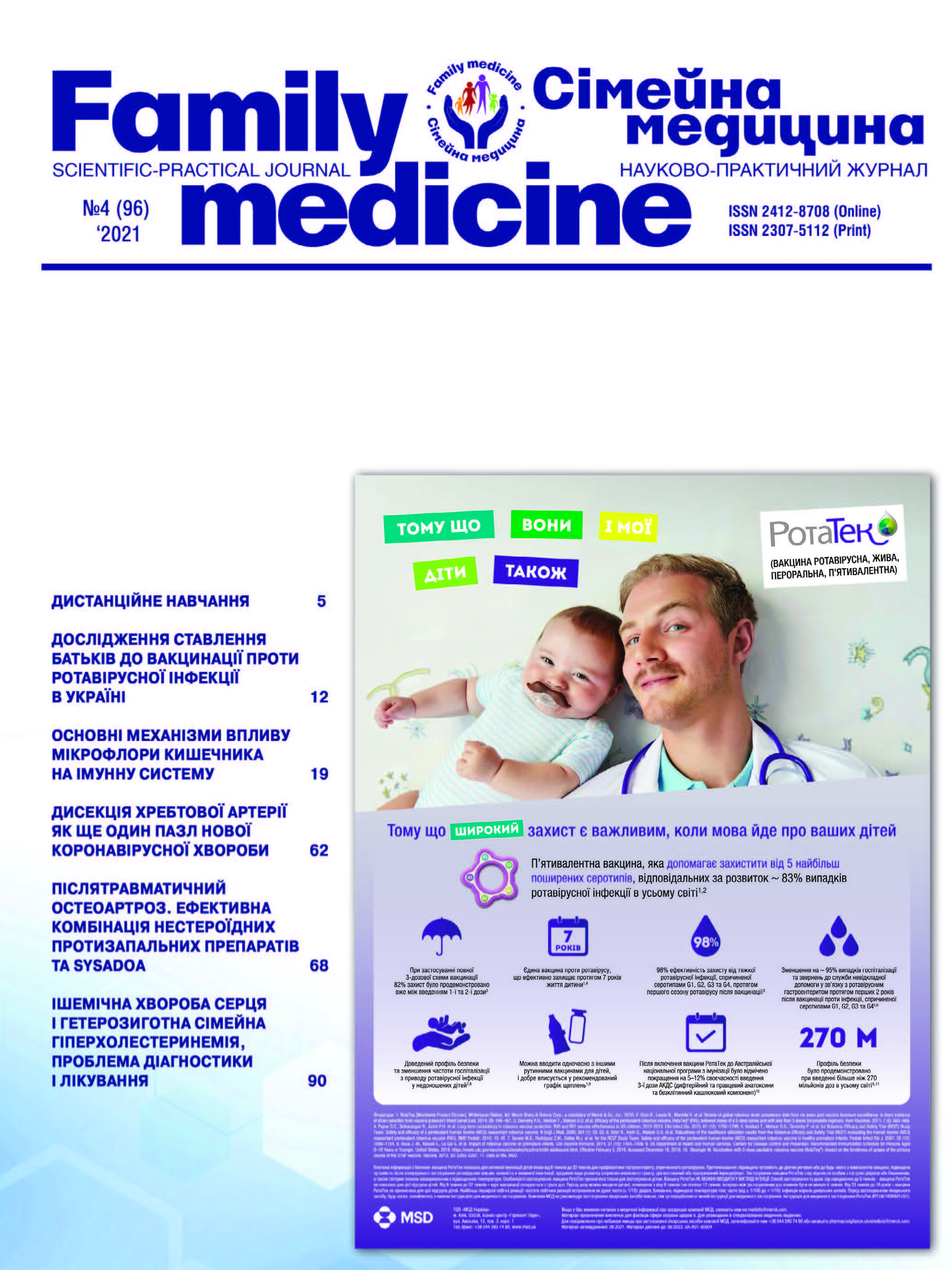The Most Common Causes of Comorbidity in Patients with Rheumatoid Arthritis
##plugins.themes.bootstrap3.article.main##
Abstract
Rheumatoid arthritis is a chronic autoimmune disease that affects the synovial membrane of the joints and leads to progressive joint damage, disability and reduced quality of life. Notwithstanding the emergence of more advanced therapeutic strategies that have improved the duration of remission, rheumatoid arthritis is associated with high rates of comorbidities, infections, malignant neoplasms, and cardiovascular pathology. It is known that some existing pathogenic inflammatory mediators in rheumatoid arthritis, such as interleukin-1β (IL-1β) and tumor necrosis factor, may play a key role in the development of cardiovascular diseases.
Various preclinical and clinical studies have shown that biological therapy, which is widely used to treat patients with rheumatoid arthritis, may be effective in treatment of cardiovascular diseases. In this context, it was proposed to study the involvement of adipocytokines. Adipocytokines are pleiotropic molecules that are primarily released from the white adipose tissue and immune cells. Adipocytokines modulate the function of various tissues and cells, and, in addition to energy homeostasis and metabolism, enhance the process of inflammation, the immune response and tissue damage. Adipocytokines can contribute to the pro-inflammatory condition in patients with rheumatoid arthritis and the development of bone tissue damage. Moreover, they may be associated with the development of cardiovascular diseases.
In the present study, we considered the already known data on the role of adipocytokines in the pathogenesis of rheumatoid arthritis, despite the fact that they are also actively involved in the pathogenesis of the cardiovascular diseases and are possible biomarkers for predicting the treatment outcomes, as well as in connection with their potential, as a possible new therapeutic target.
##plugins.themes.bootstrap3.article.details##

This work is licensed under a Creative Commons Attribution 4.0 International License.
Authors retain the copyright and grant the journal the first publication of original scientific articles under the Creative Commons Attribution 4.0 International License, which allows others to distribute work with acknowledgment of authorship and first publication in this journal.
References
McInnes IB and Schett G. Pathogenetic insights from the treatment of rheumatoid arthritis. The Lancet. 2017;389(10086):2328-37.
Giacomelli R, Gorla R, Trotta F et al. Quality of life and unmet needs in patients with inflammatory arthropathies: results from the multicentre, observational RAPSODIA study. Rheumatology (Oxford, England). 2015;54(5):792-7.
Ruscitti P, Cipriani P, Carubbi F et al. The role of IL-1β in the bone loss during rheumatic diseases. Mediators of Inflammation; 2015. 10 p.
Barile A, Arrigoni F, Bruno F et al. Computed tomography and MR imaging in rheumatoid arthritis. Radiologic Clinics of North America. 2017;55(5):997-1007.
Ruscitti P, Cipriani P, Masedu F et al. Increased cardiovascular events and subclinical atherosclerosis in rheumatoid arthritis patients: 1 year prospective single centre study. PLoS One. 2017;12(1):7.
Ruscitti P, Ursini F, Cipriani P et al. Poor clinical response in rheumatoid arthritis is the main risk factor for diabetes development in the short-term: A 1-year, single-centre, longitudinal study. PLoS One. 2017;12(7):10.
Ruscitti P, Ursini F, Cipriani P et al. Prevalence of type 2 diabetes and impaired fasting glucose in patients affected by rheumatoid arthritis: results from a cross-sectional study. Medicine. 2017;96(34):10.
Ruscitti P. Margiotta DPE, Macaluso F et al. Subclinical atherosclerosis and history of cardiovascular events in Italian patients with rheumatoid arthritis: results from a cross-sectional, multicenter GIRRCS (Gruppo Italiano di Ricerca in Reumatologia Clinica e Sperimentale) study. Medicine. 2017;96(42):8.
Zou K, Xiao FK, Li HY et al. Risk of cardiovascular disease in Chinese patients with rheumatoid arthritis: a cross-sectional study based on hospital medical records in 10 years. PLoS One. 2017;12(7):9.
Ursini F, D’Angelo S, Russo E et al. Serum complement C3 strongly correlates with whole-body insulin sensitivity in rheumatoid arthritis. Clinical and Experimental Rheumatology. 2017;35(1):18-23.
Keustermans G, van der Heijden LB, Boer B et al. Differential adipokine receptor expression on circulating leukocyte subsets in lean and obese children. PLoS One. 2017;12(10):12.
Neumann E, Junker S, Schett G, Frommer K, Müller-Ladner U. Adipokines in bone disease. Nature Reviews Rheumatology. 2016;12(5):296-302.
Scotece M, Conde J, Gómez R et al. Role of adipokines in atherosclerosis: interferences with cardiovascular complications in rheumatic diseases. Mediators of Inflammation. 2012;2012:14.
Lago F, Gómez R, Conde J, Scotece M, Gómez-Reino JJ, Gualillo O. Cardiometabolic comorbidities and rheumatic diseases: focus on the role of fat mass and adipokines. Arthritis Care & Research. 2011;63(8):1083-90.
Toussirot É, Michel F, Binda D, Dumoulin G. The role of leptin in the pathophysiology of rheumatoid arthritis. Life Sciences. 2015;140:29-36.
Santos-Alvarez J, Goberna R, Sánchez-Margalet V. Human leptin stimulates proliferation and activation of human circulating monocytes. Cellular Immunology. 1999;194(1):6-11.
Zarkesh-Esfahani H, Pockley AG, Wu Z, Hellewell PG, Weetman AP, Ross RJM. Leptin indirectly activates human neutrophils via induction of TNF-α. Journal of Immunology. 2004;172(3):1809-14.
Kiguchi N, Maeda T, Kobayashi Y, Fukazawa Y, Kishioka S. Leptin enhances CC-chemokine ligand expression in cultured murine macrophage. Biochemical and Biophysical Research Communications. 2009;384(3):311-5.
Lord GM, Matarese G, Howard JK, Baker RJ, Bloom SR, Lechler RI. Leptin modulates the T-cell immune response and reverses starvation-induced immunosuppression. Nature. 1998;394(6696):897-901.
Martín-Romero C, Santos-Alvarez J, Goberna R, Sánchez-Margalet V. Human leptin enhances activation and proliferation of human circulating T lymphocytes. Cellular Immunology. 2000;199(1):15-24.
Najafizadeh SR, Farahmand G, Roudsari AT et al. Absence of a positive correlation between CRP and leptin in rheumatoid arthritis. Heliyon. 2016;2(1)2:11.
Oner SY, Volkan O, Oner C, Mengi A, Direskeneli H, Tasan DA. Serum leptin levels do not correlate with disease activity in rheumatoid arthritis. Acta Reumatológica Portuguesa. 2015;40(1):50-54.





